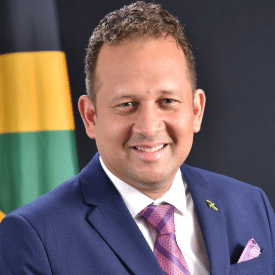People-centered development critical to CARICOM
KINGSTON, Jamaica – Leaders of the Caribbean Community (CARICOM) meeting in Jamaica said the 15-member grouping needed to embrace a new way of thinking, and focus on people-centered development and poverty alleviation.
Prime Ministers underscored those positions when they addressed the opening ceremony of the Joint Meeting of the Prime Ministerial Sub-Committees on External Trade Negotiations and the CARICOM Single Market and Economy (CSME) at the Ritz Carlton Hotel in Montego Bay, Jamaica, on February 5.
“In these changing times, we are committed to building new ways of communicating among ourselves, especially, where there could be conflicting national objectives,” host Prime Minister and Co-Chair, the Most Hon. Portia Simpson Miller, said.
In addition, Prime Minister Simpson Miller said there was a need to consider more creative approaches to structuring the Region’s institutions and inter-state relations, and to forge “our own unity and norms as we seek to extend our borders and economic and trading interests with the wider Region, the hemisphere and the world.”
The Prime Minister also pointed out that people should be at the centre of the policy process. She added that poverty alleviation was a crucial goal of the Region. “Trade agreements, in their various forms, must contribute in a real way to bettering the quality of the day-to-day lives of our CARICOM citizens. Simply put, we need to balance people’s lives as we balance the books,” Prime Minister Simpson Miller said.
Prime Minister Simpson Miller said the meeting had to make firm decisions on key matters including:
• the strategic focus and direction of the Region’s negotiations in the context of the ACP/EU EPA;
• the nature of CARICOM’s relationship with the wider Caribbean Basin Community including the Dominican Republic and how to approach its bilateral relations;
• the implications of the resumption of the multilateral trade negotiations in the World Trade Organization;
• The approach to the Region’s export trade in sensitive primary commodities like bananas and sugar;
• The Region’s approach to trade and economic relations with its North American neighbors – the United States and Canada.
CARICOM Chair and Prime Minister of St. Vincent and the Grenadines, Dr. the Hon. Ralph Gonsalves said that the Region needed to find its voice and be coherent in the way it conducted its business.
Prime Minister of Barbados, the Right Hon. Owen Arthur pointed out that the Caribbean could not ask the rest of the world to “stop and let us get off. We have to, on our own part and on our own initiative,” Prime Minister Arthur said.
Placing the discussions in context, Prime Minister Arthur pointed out that next year, CARICOM will put in place a framework where a new Caribbean economy will begin to function, when aspects of the Region’s external trade relations will have to be settled, and when the Community’s position in the global economy must be clearly defined.
CARICOM Secretary-General, His Excellency Edwin Carrington spoke of the historic nature of the ‘path-breaking’ Meeting of the Sub-Committees in Jamaica, which he described as the “cradle of so much that has given rise to Caribbean development.”
The Joint Meeting of the Sub-Committees is the first of its kind and is the “brainchild of the two chairpersons who recognized the synergistic inter-linkage which must exist between the work of the two Sub-Committees,” the Secretary General said. He spoke of the symbiotic link between Caribbean development and the nature and content of its trade. As small countries, that link, he said, remained particularly strong.
The Secretary-General also referred to the “intended beneficiaries” of the CSME and the Region’s trade policy. “The Caribbean Community Single Market and Economy, intricately inter-twined as it is with trade policy, is itself not surprisingly a work not only of governments but of the private sector and other stakeholders as well. The commonality of the builders of both trade policy and the CSME is equally matched by the commonality of the intended beneficiaries – the people of the Caribbean Community,” the Secretary General said.


